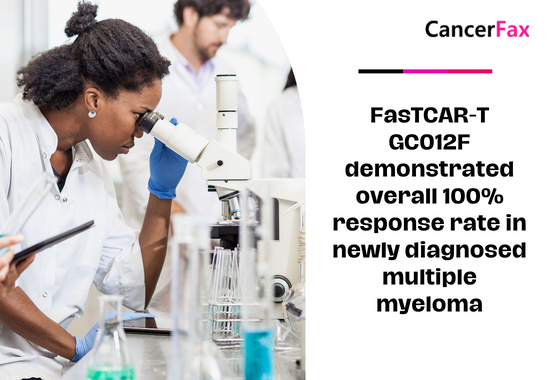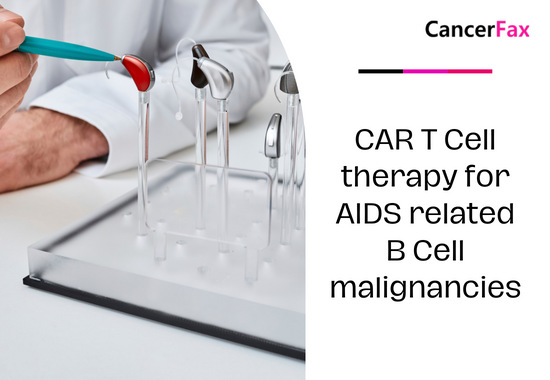Pancreatic cancer targeted drug, pancreatic cancer BRCA mutation targeted drug olaparib (Olaparib, Liprot Lynparza) received FDA expert support
Due to the strong invasiveness and limited treatment of pancreatic cancer, no breakthrough therapy has been introduced in the past few decades, and patients with advanced pancreatic cancer urgently need effective new drugs and treatments. Globally, the incidence of germline BRCA mutations in pancreatic cancer is 5-7%.
The targeted drug olapaly, which specifically targets BRCA mutations, has achieved excellent clinical data in the maintenance treatment of pancreatic cancer, which is enough to improve the current clinical treatment and help patients with advanced pancreatic cancer prolong their survival. In October 2018, the U.S. Food and Drug Administration (FDA) granted olapaly the orphan drug treatment for pancreatic cancer.
Olaparib is supported by the FDA expert committee for the treatment of gBRCAm pancreatic cancer
On December 17, the U.S. Food and Drug Administration (FDA) Oncology Drug Advisory Committee (ODAC) voted 7 to 5 to recommend the approval of the targeted anticancer drug Lynparza (Chinese brand name: Liprot, generic name) : Olaparib, olaparib), as a first-line maintenance monotherapy, treatment of patients with metastatic pancreatic cancer who has no progress after receiving first-line platinum chemotherapy for at least 16 weeks and carries a germline BRCA mutation (gBRCAm).
The sNDA submission is based on the positive results of the POLO phase 3 trial published in the New England Journal of Medicine and published at the 2019 American Society of Clinical Oncology (ASCO) annual meeting. The results showed that the statistical and clinical significance of progression-free survival (PFS) was significantly improved, reducing the risk of disease progression or death by 47%.
Olaparib almost doubled the progression-free survival time of patients with metastatic pancreatic cancer with BRCA mutations (3.8 vs 7.4 months).
Olapali has been approved by the US FDA for the treatment of ovarian and breast cancer. Olaparib was approved by the US FDA in December 2014 to become the first PARP inhibitor approved globally, and has been approved in 65 countries around the world.
The good news is that Olapali has been approved for listing in China for the treatment of ovarian cancer, and was included in the medical insurance catalog at the end of November this year. The price of drugs has dropped by about 60%. After the price reduction, it should be less than 10,000 yuan per box. According to 70% of medical insurance reimbursement, the price of each box of olapaly is almost 3,000 yuan, and the monthly cost of medication is 6,000 yuan.
Two indications for Olapali
In August 2018, Olapali was approved for listing in China, becoming China’s first targeted drug for ovarian cancer, used for the maintenance treatment of platinum-sensitive recurrent ovarian cancer (stable condition after platinum therapy, Ola Pali can delay the time to relapse).
On December 5, 2019, China’s State Drug Administration has officially approved the use of olapa for first-line maintenance treatment of patients with BRCA-mutated advanced ovarian cancer. Benefiting from China’s vigorous support for pharmaceutical innovation and the accelerated advancement of clinically needed new drug approvals, olapaly became the first PARP inhibitor approved in China for first-line maintenance therapy of ovarian cancer.
Indications for Olapali approved by the US FDA
First-line maintenance treatment of advanced ovarian cancer with BRCA mutation
Maintenance treatment for adult patients with harmful or suspected harmful germline or somatic BRCA mutations (g BRCAm or s BRCA m) in adult patients with epithelial ovarian cancer, fallopian tube cancer or primary peritoneal cancer Complete response or partial response. Select patients for treatment based on the FDA approved LYNPARZA concomitant diagnosis.
Maintenance treatment of recurrent ovarian cancer
For maintenance treatment of adult patients with recurrent epithelial ovarian cancer, fallopian tube cancer, or primary peritoneal cancer, these patients have a complete or partial response to platinum-based chemotherapy.
Postline treatment of advanced BRCA mutation ovarian cancer
For the treatment of adult patients with ovarian cancer with harmful or suspected harmful germline BRCA mutations (g BRCA m), they have received 3 or more frontline chemotherapy treatments. Select patients for treatment based on the FDA approved LYNPARZA oncomitant diagnosis.
BRCA mutation, HER2-negative metastatic breast cancer treatment
Treatment of metastatic breast cancer with harmful or suspected harmful germline BRCA mutations (g BRCA m), human epidermal growth factor receptor 2 (HER2) negative, which has been treated with neoadjuvant therapy, adjuvant therapy, or metastatic cancer . Patients with breast cancer who are hormone receptor (HR) positive should receive endocrine therapy first, or be considered unsuitable for endocrine therapy. Select patients for treatment based on the FDA approved LYNPARZA concomitant diagnosis.
Olapali is a first-in-class, oral PARP inhibitor that utilizes defects in the DNA repair pathway to preferentially kill cancer cells. This mode of action gives Olapali the potential to treat a wide range of tumors with DNA repair defects. Currently approved for ovarian cancer and breast cancer, it is expected to be quickly approved for pancreatic cancer, and has achieved excellent results in the treatment of prostate cancer.
In principle, the target of PARP inhibitors is the BRCA mutant gene, whether it is approved ovarian cancer, breast cancer, or pancreatic cancer that has just received FDA expert support, in addition to the treatment of recurrent ovarian cancer, it is suitable for Ola Parley patients need to detect mutations in the BRCA gene and cannot use them blindly.
Therefore, it is very important to obtain accurate and authoritative genetic test reports before treatment. Only if the BRCA gene mutation test results are accurate can we hope to obtain the benefits of survival. The genetic testing institutions currently on the market vary greatly. Vicki recommends that you consider the reliability of genetic testing institutions from the following aspects.
First, the hardware-the detection equipment must be precise, and the data is accurate!
Second, the software-database and expert strength are the core competitiveness!
Third, quality control-the size of the testing team determines the accuracy of the test results!
Fourth, the laboratory-must obtain national (international) qualifications, CAP and CLIA dual certification!
Fifth, official recognition-choose FDA approved genetic testing is more secure.

